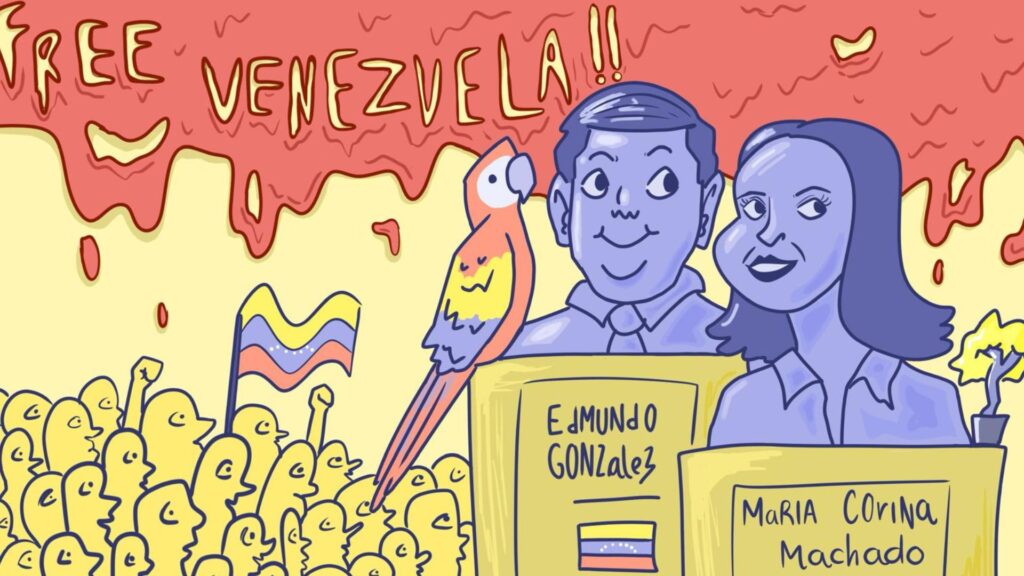The Presidential Elections In Venezuela Show The Will Of A Captive Country
Venezuela is witnessing one of the biggest opposition movements in its history.
The Consejo Nacional Electoral, Venezuela’s electoral council, declared Nicolás Maduro president for his third consecutive term.
Since 2013, Maduro has spearheaded Venezuela’s socialist movement, nicknamed Chavismo after Hugo Chávez Frías, who pioneered the movement and was president of Venezuela from 1999 until his death.
Throughout Maduro’s tenure, the country has experienced poverty, hyperinflation and the emigration of millions of Venezuelans.
Maduro’s biggest problem, however, is not the country’s physical state, but his unwillingness to step down after citizens rejected Chavismo.
This year, more citizens than ever voted against Maduro, including areas that have historically been pro-Chavismo.
María Corina Machado, leader of Venezuela’s opposition movement, was originally the party’s lead candidate after she won primary elections with 92.35 percent of the vote.
However, in June of 2023, the government banned Machado from holding office for 15 years for allegedly promoting international sanctions against Venezuela and supporting ex-political leader Juan Guaidó.
That led to the appointment of Edmundo Gónzalez Urrutia, a former Venezuelan ambassador to Argentina and Algeria. He led campaigns with Machado urging Venezuelans to show their will by voting.
On July 28, Urrutia won the election with 7,156, 462 votes, while Maduro only had 3,241,461 votes, proven by 81.70 percent of the voting receipts, which are public to the world.
The dictatorship is denying the loss and the CNE claims Maduro won with 51.2 percent of the popular vote.
Voting centers were corrupted by the CNE, as board members would not allow citizens to enter to vote.
Federal employees, such as “colectivos,” far-left armed groups, were also seen stealing ballots, adding votes and preventing witnesses of the opposition movement from receiving final tally sheets—a constitutional right that validates the elections.
As a result, citizens have gone to the streets to protest.
The government has responded with the same oppression they have exhibited in the past 20 years, resulting in 16 deaths and more than 1,200 citizens being detained.
Even a 13-year-old girl has been subject to persecution, receiving six years of prison time for acts of “terrorism” even though she was not involved in the ongoing protests.
Now, the whole world has witnessed this electoral fraud. Venezuelans, along with countries like the United States, Argentina and El Salvador, have pointed out the shameful act.
This is not a fight between two political parties. It’s a fight against immorality. A government that spills the blood of its citizens does not represent democracy.
Urrutia is the elected president of Venezuela. Denying this fact is keeping the country captive. Families are being destroyed and if we don’t solve the problems of today, they will affect the children of tomorrow.
Most of the data used in this column is from social media platforms because Venezuelan media outlets are run by the government and offer only the regime’s point of view.

